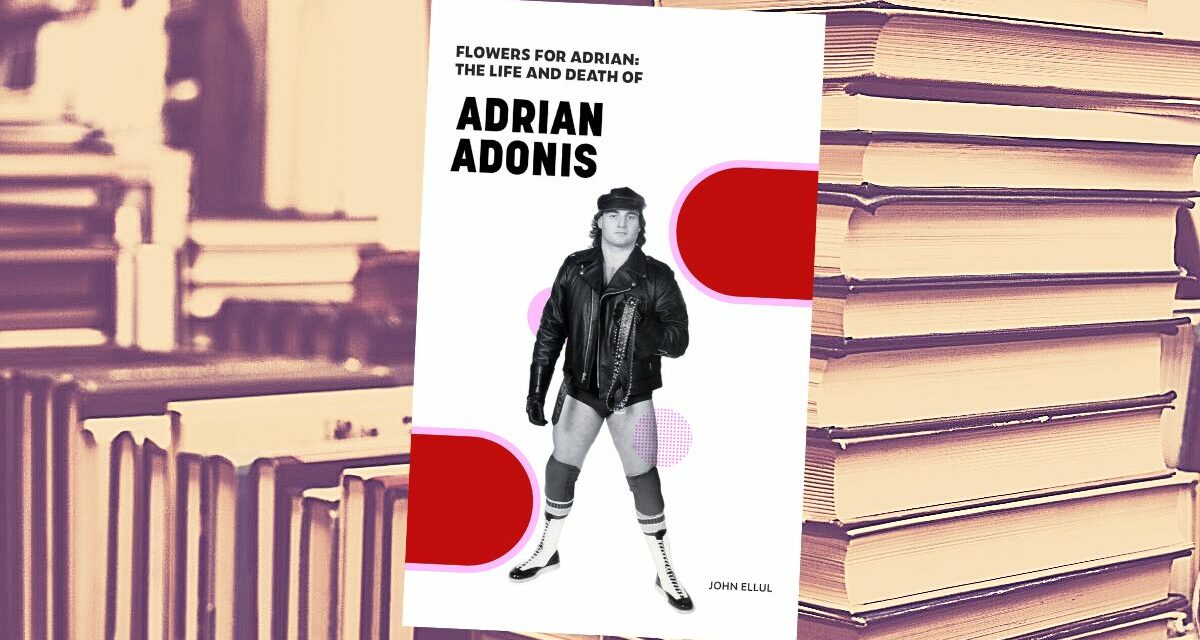The first-ever biography of former WWF and AWA tag champion ‘Adorable’ Adrian Adonis, Flowers for Adrian: The Life and Death of Adrian Adonis, has been out for over a year now — yes, this a very late review on it. Even though I’m a journalist, I usually only read pieces that really intrigue me.
To be honest, I wasn’t too familiar with Adrian Adonis, nor have I read a wrestling book previously — however, I really enjoy watching professional wrestling. When I was offered to read and write a book review, I was a little hesitant. I decided to take a chance, and I was pleasantly surprised.
Flowers for Adrian: The Life and Death of Adrian Adonis is an engaging look at the life journey and legacy of professional wrestler Keith Franke. In the 1970s and 1980s, he competed under the names ‘Gorgeous’ Keith Franks and, more famously, ‘Adorable’ Adrian Adonis.
This biography takes readers from Franke’s early days as an orphan to his accomplishing his childhood dream of becoming a pro wrestler. The tale plays out across many different wrestling regions, including where Franke learned his ‘old-school’ style — personally, my favorite part was reading about his time in Japan.
With contributions from Franke’s friends, family, and former colleagues, such as ‘Magnificent’ Don Muraco, Tully Blanchard, Jerry Brisco, and more, Flowers for Adrian is the definitive story of the man behind the make-up.
It is written by John Ellul, a UK-based freelance journalist. Through his research and interviews with various sources, readers will learn the story of Adonis’ life and legacy, and much more, such as headlining Madison Square Garden, the true story behind the Amarillo shoot-fight and his plans post-wrestling.
Since I knew nothing about Adrian Adonis, I did learn a lot about him. Something that really surprised me was who he faced and teamed up with in New Japan Pro Wrestling. He had many battles with Andre The Giant, tagged with Bob Orton Jr., and even had a friendship with Hulk Hogan.
The book does touch on his character, portraying the gay stereotype. It offers perspective of how controversial the character itself was. Some people appreciated the unique character, and some people hated it and found it offensive.
The biography is definitely a good read, but I feel like going into it, the reader should have an open mind, only because it could change the way you thought of the character or give them a chance to separate the person and his persona.
I really liked the way Ellul displayed Adonis’ life journey. The best way to understand and describe someone or something is to go in the order of what happened first instead of constantly calling back to the past. It was clear that from start to finish, his life had many obstacles, and he dealt with them only in the way he could think of. It was well executed, and there’s not much to say other than that the first biography of Adrian Adonis is a success in my eyes.
RELATED LINKS
- July 12, 2023: The Jekyll and Hyde life of Adrian Adonis explored on ‘Dark Side of the Ring’
- Buy Flowers for Adrian: The Life and Death of Adrian Adonis on Kindle at Amazon.com or Amazon.ca
- SlamWrestling Master Book List

